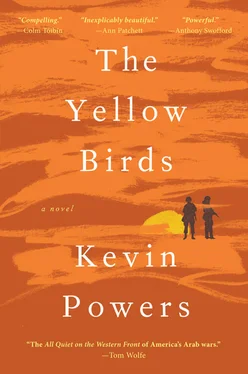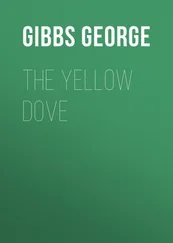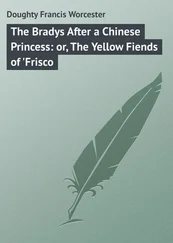When I got back to the house, my shirt soaked through with sweat and starched again with salt, I’d put the beer in my closet, and walk into the kitchen, where I’d stand for a long time looking out the window onto the haze rising off the pond. I didn’t want to broaden the evidence of my existence wider than brief footprints of moisture on the floor of my mother’s modest country kitchen. I looked out the window and saw the street and railroad tracks, the woods beyond. Beyond the woods, the county of which they were a part. And so on, until it all dissolved into the larger thing: my mother’s house becoming every other house as I once had seen it, sitting atop the southern end of a broad river valley, close enough to the mountains that every few years a scared black bear would wander down into the remaining forest, and close enough to the ocean that those early English settlers took it as the farthest point they’d go upstream, the geology of the place preventing them from having any choice other than the one wherein they said, “We are lost; therefore we will call this home.” And close enough that as a child I had been teased by older kids who said if I only tried hard enough I would smell salt water, and I, believing, stood among the light poles and the gulls in the parking lots of A&Ps and cried when I knew that it was true despite the fact that they had meant to lie, as children sometimes do.
The house itself rested above one of many ponds and streams meandering down to the James like so many pieces of unwound rope. And on the other side: Richmond, its glass buildings sometimes reflecting the river below, or clouds, or ironworks and track nearly gone to powder with rust. There it sat, up on its escarpment, which the river had scoured out over the millennia, and still it dug farther into the earth, winding in the landscape like a salesman’s banner unfurling to reveal his wares.
Back home, everything had begun to remind me of something else. Every thought I had blossomed outward and backward until it attached itself to some other memory, that one leading to another, impermanent, until I was lost to whatever present moment I was in. “Honey, do you mind fixing the fence out by the pond?” my mother would say in the shortening days of summer, and I would walk into the long expanse of the yard holding a hammer and a fistful of nails and I’d reach the fence and lean on it, looking out over the water as warm breezes made it ripple and I’d be brought back. Back to what? To nothing, to everything. The yelp of dogs echoing out from where they rolled in wet garbage in the shadow of the Shamash Gate. If I heard the caw of ugly crows swing down from the power line that they adorned in black simplicity, the caws might strike in perfect harmony with the memory of the sound of falling mortars, and I, at home now, might brace for the impact, come on, you motherfuckers, I’d think, you finally got me, and then as the birds took flight I would remember and I’d look back and see my mother’s face silhouetted in the kitchen window and I’d smile back at her and wave, take the loosening wire meshing of the fence and begin to nail it back in place. You want to fall, that’s all. You think it can’t go on like that. It’s as if your life is a perch on the edge of a cliff and going forward seems impossible, not for a lack of will, but a lack of space. The possibility of another day stands in defiance of the laws of physics. And you can’t go back. So you want to fall, let go, give up, but you can’t. And every breath you take reminds you of that fact. So it goes.
Late August. I left my mother’s house. I’d developed the habit of taking long, aimless walks to fill the days. I woke one morning in a small room off the kitchen in my single bed wishing that I hadn’t. It wasn’t the first time. I was tired of my mind running all night through the things I remembered, then through things I did not remember but for which I blamed myself on account of the sheer vividness of scenes that looped on the red-green linings of my closed eyelids. I could not tell what was true and what I had invented but I wanted it to stop, to leave it and have my perception drift away like a burned-up fog. I wanted to go to sleep and stay there, that’s all. A passive wish, one I didn’t push. Sure, there is a fine line between not wanting to wake up and actually wanting to kill yourself, and while I discovered you can walk that line for a long while without even noticing, anybody who is around you surely will, and then of course all kinds of unanswerable questions will not be far behind.
The phone rang one morning. Ma picked it up. “It’s Luke, honey,” she said, calling to me from the other room. Eleven o’clock. Still in bed.
“Tell him I’ll call him back.”
She walked into my room and put the mouthpiece to her chest. “You’ve got to talk to people, John. It’s not good to be by yourself so much.”
I’d known Luke since middle school. He was my best friend, though even now, those words don’t seem to mean anything. My fault, not his. His name reminded me of that discovery you make as a kid, that if you say a word over and over it will start to sound like gibberish, like white noise. “Take a message,” I said.
She looked at me.
“I’ll call him back, Ma. Promise.”
She put the phone up to her ear and turned away. “He’s tired, Luke. Can he call you back?…Tomorrow? All right. I’ll tell him.”
“We done?” I asked.
“Goddammit, Johnny,” she huffed. “They’re going to the river tomorrow afternoon. They want to see you. People want to see you.”
“All right.”
“All right, what?”
“All right, maybe.”
“You’ll think about it?”
“Yeah.”
“I really think you should. Just think about it.” She smiled tentatively.
“Goddammit, Mama. All I fucking do is think.”
I put my pants on and I went out onto the back porch and spit over the handrail, and it was a yellowish brown, and my body pulsed with a warm obtuse ache from my eyelids to my fingertips. The ache was inside my body too, an all-encompassing type of pain like my whole skin was made out of a fat lip. I lit a cigarette and went down to the pond behind her house, the light all bright and shimmery like raw linen in the dense summer air, then farther back into the woods where the pond drained into a creek and ran between steeply gouged-out red-clay banks. At a spot where the creek caught up and swirled and eddied between exposed rocks, I found a place I’d often come to as a child. A large boulder overhung the creek, the red clay long since weathered away. Roots of a large gray birch clung to the side of the rock and went down into the ground where it leveled off into a clearing next to the creek. The leaves in the canopies of central Virginia’s hardwood forests had begun their pre-autumnal yellow tightening and they hung over the clearing and the creek and the light fell through them in a way that I was fond of and the morning was kind of soft-edged and clumsy like I’d been seeing it through gauze.
I made my way down the steep clay bank and tottered along a downed tree that crossed the creek. The rocks were slick but they were not as far apart as I remembered, and it was not too hard to get across because the previous night’s beers had me moving at a deliberate pace. I used my hands to brace myself as I made my way beneath the overhang, and though the morning had already begun to warm up it was cool under there, and I could feel the cool from the moisture of the big rock against my hands. Up on a birch, the initials J.B. had been carved into the sheet of silver bark a half-dozen times, each one a slightly different size from the others, with various patterns of lines where the cuts had stretched out with the tree’s growth. I climbed over to the tree and rubbed my fingers, all dull and warm, into the cut marks. I could not remember making the marks, but I was sure I’d made them. Of course J.B. is not an uncommon pair of initials, but I was sure I’d made the carvings and I could not remember anything about doing them and so I smiled.
Читать дальше












